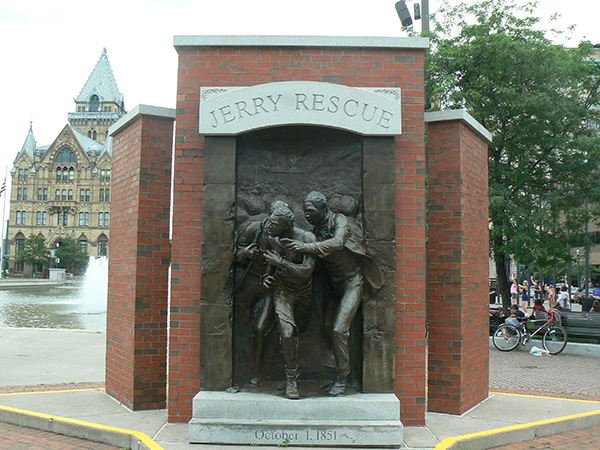His Name Was William
David Freund, Chief Leadership Officer

Around midday, a contingent of Federal Marshals from surrounding cities entered Morrell’s cooperage and arrested William on a charge of theft. After William left the cooperage and was handcuffed, the officers informed William that he was actually being arrested based on a relatively new federal law. As William was being moved through town, a small group of citizens helped William escape. Within a few hours, however, he was re-apprehended and dragged through town. Bystanders were appalled at how William was treated by the authorities and equally appalled by the federal law used as a basis for his arrest. They determined that something needed to be done.
A pastor, an attorney, and a future Congressman soon arrived at the police station to secure William’s release, but failed. At a mere 40 years of age, poor William was being held in a city jail, on a relatively new federal law, that the town did not believe was proper or constitutional. Meanwhile, across town, a plot was being drawn up to rescue William. At 8:00 pm, with strict orders to engage in a peaceful, non-violent act, 2,000 citizens of this amazing little town rounded the city jail. The crowd pushed open the door, and with deputy marshals, firing shots out the window, an ironworker by the name of J.M. Clappe freed William and escorted him to safety.
So, what was that improper law? The Fugitive Slave Act of 1850. Who were those three men who tried to secure William’s freedom by legal means? Reverend Samuel May, soon to be congressman Gerrit Smith, and attorney Leonard Gibs. Where was that small town with enough courage to defy the Federal Government because they believed that all men are endowed by their Creator with certain unalienable rights? Why that was our very own Syracuse, New York. And William, well, you know him by his nickname, Jerry.
Leaders don’t wait for others to act. When they see suffering and injustice, they rise to the occasion and act. I am proud to live in this city and thankful that in Clinton Square, we have a monument to remind us of that wonderful autumn day in 1851 when over 2,000 Syracusans helped Jerry to freedom. A wonderful monument that inspires us to strive on. If you would like to hear more about this amazing event, please join Marisa Norcross and me for Episode 189 of The Next Page podcast.
Download The Next Page Here: iTunes | Google Play | PodBean